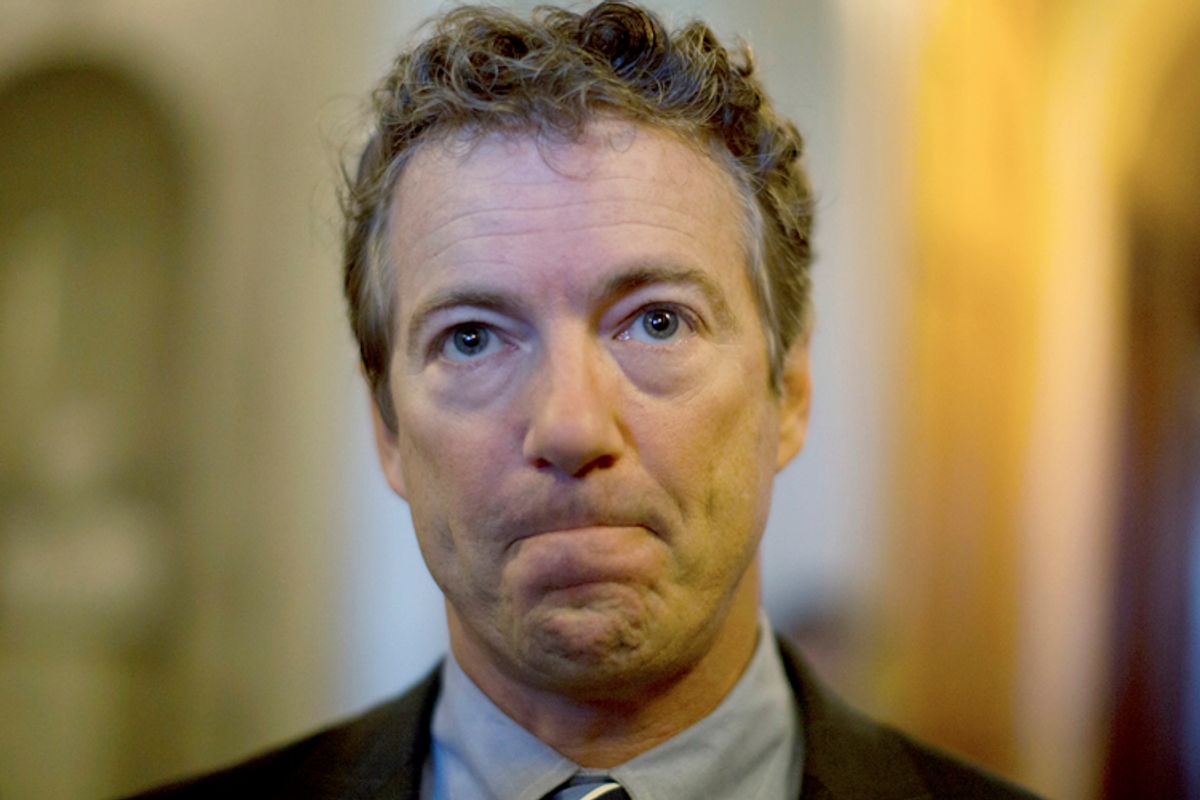It’s way too early to declare victory on extending unemployment insurance benefits to the long-term jobless. Yes, six Republicans joined Democrats to let the measure come up for debate and a vote. That shouldn’t even make headlines, but given the filibuster-happy GOP Senate minority in the age of Barack Obama, it’s news. Still, not all of the six are likely to support the bill, though it will almost certainly pass the Senate. It faces real trouble in John Boehner’s House, where the tanned and rested speaker returned from his long vacation telling Democrats they’ll have to cut other safety-net programs to pay for it.
But it’s worth noting how much Democrats have already changed the UI debate. Republicans have gone from flat refusals to extend long-term unemployment to insisting they’ll consider an extension, as long as it’s paid for. That’s progress worth acknowledging.
Sure, Congress extended UI 14 of 17 times without finding funds to pay for it, including five times under George W. Bush. The party’s recent extremism on unemployment insurance is just another measure of how far it has shifted right in the last five years. But Democrats’ new boldness on issues of economic populism and income inequality has Republicans scrambling for a politically palatable reply – on UI as well as the larger issue of poverty and opportunity.
Sen. Rand Paul is the poster boy for the GOP’s ideological scramble. In early December he flatly dismissed a UI extension by saying it did a “disservice” to the unemployed. Four weeks later, after spending some of his winter break back in Kentucky, where unemployment remains high and 38,000 jobless people lost benefits Dec. 28, Paul shifted a little, agreeing to consider an extension as long as it’s paid for.
But Paul continued to push the line that UI hurts the unemployed by creating a “disincentive” to seek work. The lightweight freshman senator apparently has been bulking up on economics research lately, citing studies that he says prove that extended insurance impedes recipients from getting jobs. The only problem is that the economist Paul cited, Rand Ghayad, says the Tea Party senator is misrepresenting his work. In fact, Ghayad’s research says the opposite of what Paul claims and makes the case for extended benefits.
President Obama gleefully took Paul to task in brief remarks urging Congress to restore the benefits. Noting that some Republicans say UI “saps their motivation to get a new job,” Obama savored a chance to rebut that argument. “I wanna go at this for a second,” he said. “That really sells the American people short. I can't name a time when I met an American that would rather have an unemployment check than the pride of having a job."
Why do Republicans hate America?
The new aggressiveness is working. No longer are the unemployed merely “takers” leeching off “makers,” to use Paul Ryan’s old lexicon. In the new GOP poverty rhetoric, they’re victims of Democratic government. Of course, that’s actually old rhetoric, going back to Ronald Reagan falsely declaring, “We fought a war on poverty, and poverty won.”
But in the last decade Reagan came to look like a bleeding heart liberal for even appearing to care about the poor. Republican rhetoric became increasingly harsh and judgmental, and once-bipartisan programs like food stamps and unemployment insurance became radical redistributionist schemes to reward the “47 percent” – the slackers and moochers who Mitt Romney claimed sought and received “gifts” for supporting Obama.
That’s changing, slowly. Maybe because of polls like the one just completed by Hart Research (on behalf of the National Employment Law Project). Surveying likely 2014 midterm voters the pollsters found they overwhelmingly supported extended benefits 55 to 34 percent. Significantly, key Republican groups like seniors and white non-college educated voters were among the most supportive; white women, a swing group that leaned to the GOP in 2012, support maintaining the benefits 53-33 percent.
Democrats still don’t have the votes to extend unemployment or restore food stamp cuts. It’s too early to celebrate. But Republicans are on their heels, and some apparently see political pain in continuing to mock the struggles of unemployed Americans – especially the older, white, non-college educated voters who make up their base.



Shares